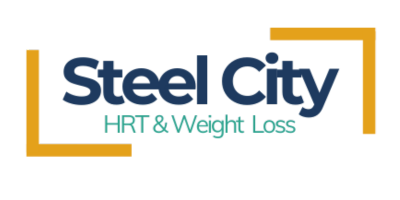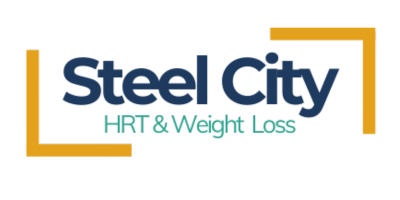
Why Doctors Are Recommending Creatine for More Than Just Muscle Gains
Creatine: The Most Overlooked Medical Supplement?
If someone told you there's a supplement that improves brain function, boosts mood, helps regulate blood sugar, supports aging muscle, and even complements hormone therapy, would you believe them?
That supplement is creatine—and no, it’s not just for bodybuilders or high school athletes with protein shakers.
In clinics across the country—including here at Steel City HRT—doctors are increasingly turning to creatine monohydrate as a low-cost, research-backed tool for improving mental health, metabolic function, and muscular longevity. When paired with testosterone therapy (TRT), hormone replacement therapy (HRT), or medical weight loss programs, the results can be life-changing.
This article unpacks the clinical research, patient stories, and medical reasons why creatine deserves a spot in your daily routine—especially if you’re over 35, feeling burned out, or fighting stubborn fatigue.
Creatine and Depression: Fueling a Brighter Brain
More Than Serotonin—You Need Brain Energy
When most people think of depression, they think of serotonin imbalances. But there’s another key player: cellular energy. Without enough ATP, the brain struggles to maintain mood, motivation, and mental clarity.
Creatine helps by recharging ATP in brain cells, offering a new way to tackle mood disorders from the inside out.
In a randomized controlled trial, women with treatment-resistant depression who added creatine to their SSRI therapy experienced faster and more complete symptom relief (Kondo et al., 2011).
Benefits of Creatine for Mental Health:
Enhances emotional resilience
Reduces fatigue-related irritability
Supports energy for daily coping and stress tolerance
Many of our patients at Steel City HRT struggling with low motivation or burnout saw significant improvement by combining creatine with TRT or HRT.
Neuroprotection: Creatine and Brain Aging
Because Your Brain Ages Too
As we age, brain cells lose efficiency. Oxidative stress, mitochondrial dysfunction, and inflammation all contribute to brain fog, memory issues, and even neurodegenerative diseases like Parkinson’s.
Creatine has been studied for its ability to:
Protect neurons from oxidative damage
Improve mitochondrial resilience
Slow progression of Parkinson’s Disease (Bender et al., 2008)
For men and women on hormone therapy—who already benefit from cognitive improvements—creatine adds another layer of mental protection and performance.
"After starting HRT, I felt sharper, but I still had word recall issues. My provider added creatine, and it felt like the fog finally lifted. I’m not 25 again, but my brain isn’t stuck in neutral anymore." — Erin, 51, Colorado Springs
Metabolic Support: Creatine for Diabetes and Insulin Sensitivity
Not Just Muscles—It Affects Metabolism Too
Creatine plays a powerful role in glucose regulation and metabolic function. In people with or at risk of type 2 diabetes, creatine supplementation has been shown to improve glycemic control and insulin sensitivity (Gualano et al., 2011).
This is critical for anyone trying to:
Lose fat with GLP-1 injections
Improve insulin sensitivity after 40
Stabilize blood sugar while on TRT
When combined with regular activity and hormone optimization, creatine acts as a metabolic amplifier—especially helpful during body recomposition and fat loss phases.
Why It Matters:
Metabolic health affects energy, weight, hormones, and mood
Creatine improves mitochondrial function in muscle and liver tissue
Supports healthy blood sugar and inflammation balance
Aging, Muscle Loss, and Creatine’s Role in Sarcopenia
The Age-Related Muscle Epidemic
If you’ve noticed it’s harder to maintain muscle, recover from workouts, or even climb stairs without soreness, you may be facing sarcopenia—age-related muscle loss.
This isn’t just a cosmetic issue. Losing muscle affects your metabolism, immune health, joint function, and independence.
The solution? Hormone therapy + creatine.
In a study by Candow et al. (2014), older adults using creatine with or without resistance training experienced increased lean mass, strength, and physical function. When combined with TRT or HRT, these effects are magnified.
Clinical Benefits of Creatine in Older Adults:
Retains lean body mass during calorie restriction
Reduces risk of falls and frailty
Enhances effects of testosterone therapy on muscle development
Creatine Complements, Not Replaces, Hormone Optimization
The Perfect Addition to Your TRT or HRT Plan
Creatine is powerful—but it isn’t a cure-all. Alone, it can support mental clarity and muscle retention. But when stacked with hormone therapy, it becomes part of a complete optimization strategy.
At Steel City HRT, we often add creatine to protocols that include:
Testosterone therapy for men experiencing fatigue, poor recovery, and low muscle mass
HRT for women facing menopause symptoms and cognitive decline
Medical weight loss patients seeking to retain muscle during rapid fat loss
"I thought creatine was for meatheads. My provider explained how it works in the brain and supports energy production. I added it to my TRT stack, and it’s a night-and-day difference in my motivation, workouts, and mood." — Carlos, 39, Pueblo, CO
FAQs: Medical Creatine Use
Can creatine help with mental fatigue?
Yes. Creatine improves brain energy metabolism, which helps fight fatigue and brain fog.
Is creatine safe for people with diabetes?
Yes, and some studies show creatine may improve insulin sensitivity when combined with exercise.
Do I need to be working out to benefit from creatine?
No. Creatine still offers neurological and metabolic benefits even without exercise.
Is creatine safe to take long-term?
Absolutely. Decades of clinical data show that creatine monohydrate is safe for long-term use in healthy adults.
How much creatine should I take?
3–5 grams per day is the most effective dose. No need to cycle.
Let’s Build a Smarter Health Stack
Your health journey isn’t one-size-fits-all. Whether you’re battling burnout, managing chronic fatigue, trying to lose weight, or simply want to feel sharp and energized again—creatine may be the missing link.
When paired with personalized hormone therapy and metabolic support, it becomes a clinical powerhouse for:
Mental health
Metabolic stability
Strength and muscle retention
Long-term vitality
Let our team at Steel City HRT help you design a stack that works for your body.
👉 Call 719-669-4223 or visit https://steelcity-trt.com to book your consultation today.
You deserve a strategy that makes you feel alive again.
References (APA Format)
Bender, A., Samtleben, W., Elstner, M., & Klopstock, T. (2008). Long-term creatine supplementation is safe in aged patients with Parkinson disease. Nutrition Research, 28(3), 172–178. https://doi.org/10.1016/j.nutres.2008.01.008
Candow, D. G., Chilibeck, P. D., Facci, M., Abeysekara, S., & Zello, G. A. (2014). Protein supplementation before and after resistance training in older men. Experimental Gerontology, 58, 1–7. https://doi.org/10.1016/j.exger.2014.01.006
Gualano, B., de Salles Painelli, V., Roschel, H., Lugaresi, R., Dorea, E., Artioli, G. G., ... & Lancha Jr, A. H. (2011). Creatine supplementation and glycemic control: a randomized, double-blind, placebo-controlled trial. Medicine and Science in Sports and Exercise, 43(3), 565–572. https://doi.org/10.1249/MSS.0b013e3181f02d8f
Kondo, D. G., Sung, Y. H., Hellem, T. L., Fiedler, K. K., Shi, X., & Renshaw, P. F. (2011). Creatine monohydrate augmentation of sertraline treatment of depression in women: a pilot study. Journal of Clinical Psychopharmacology, 31(5), 569–575. https://doi.org/10.1097/JCP.0b013e31822bb1f4




Facebook
Instagram
LinkedIn
Youtube
TikTok
Pinterest